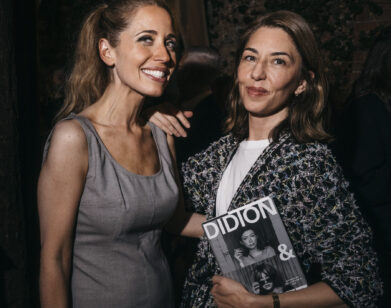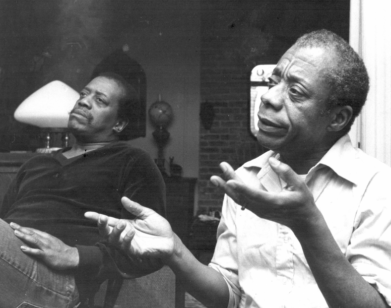rough draft
Sanjena Sathian Wants to Go to the Met Ball with Zadie Smith
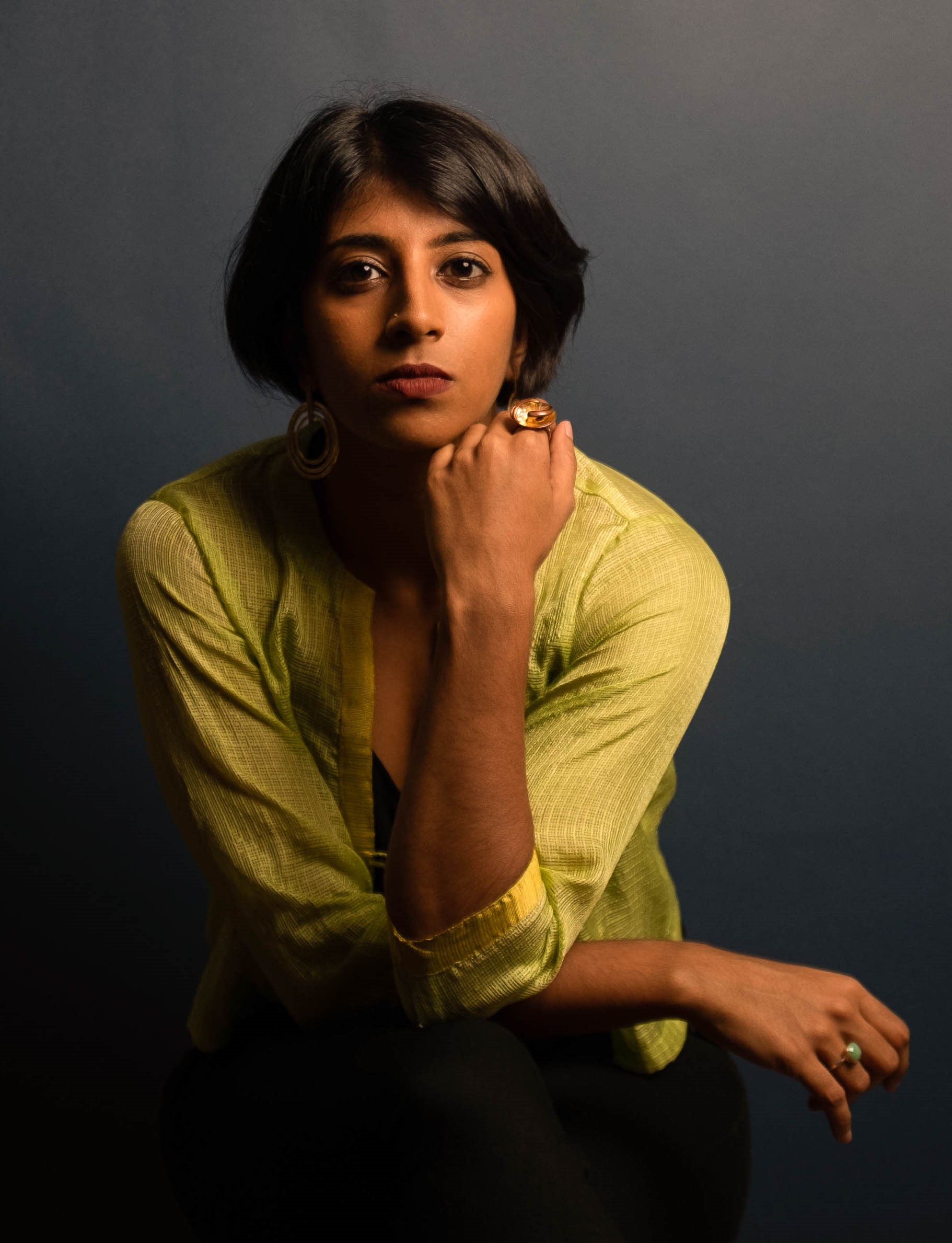
Photo by Tony Tulathimutte.
This is Rough Draft, in which our favorite writers get to the bottom of their own craft. From preferred writing drinks to whether or not you really need to carry a notebook, we find out all the ways they beat writer’s block and do the work. Before curling up with the debut novel Gold Diggers by Sanjena Sathian—which will soon be adapted for television by Mindy Kaling—discover all the elements that helped her get it done.
———
JULIANA UKIOMOGBE: Describe your ideal writing atmosphere. What gets you in the mood?
SANJENA SATHIAN: When I’m in the swing of things, I like to wake up early. I’m not an early riser, so 9 a.m. does the trick. I get my coffee and sit with a novel I’m reading. Reading first thing in the morning reminds me that I want someone else to look forward to my work as much as I look forward to immersing in whatever I’m currently reading. I then retreat to my office. I’ve moved so much that I remake an office every time, but what matters is having a space apart from the rest of the house. I say all this as though I have it figured out. I change my routine every few months. The only constant is the coffee.
UKIOMOGBE: Do you eat/drink while you write?
SATHIAN: Coffee in the mornings. Kombucha in the afternoons. Sparkling water in summer.
UKIOMOGBE: Do you ever smoke or drink while you write? How do you think they impact your writing?
SATHIAN: I don’t smoke cigarettes and I could never write if I smoked something else more fun. I used to write with a glass of red wine in my hand when I had a full-time job. It was a bad idea. I’d just get sleepy.
UKIOMOGBE: Do you keep a notebook and/or journal?
SATHIAN: In the Didion sense, I keep something of a notebook. It’s slapdash. It’s more a chronicle of my anxieties than my day-to-day experiences. I absolutely hate the verb “to journal.” Who made that up? It’s optimization culture-ish.
UKIOMOGBE: What’s your favorite quote?
SATHIAN: I love this line from a Naomi Shihab Nye poem The Art of Disappearing: “When someone recognizes you in a grocery store / nod briefly and become a cabbage.”
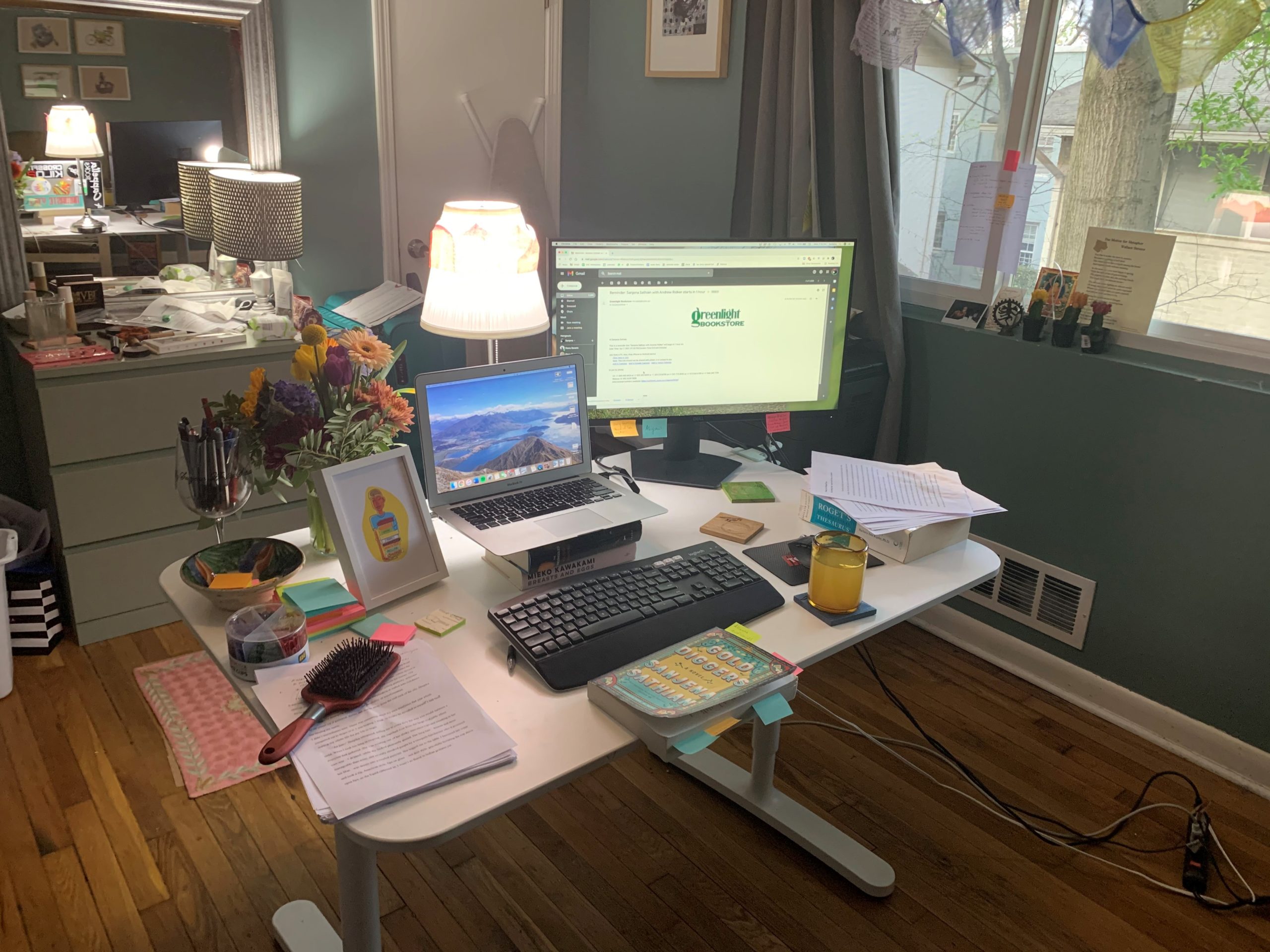
Photos courtesy of Sanjena Sathian.
UKIOMOGBE: Whose writing do you always return to?
SATHIAN: I have very catholic taste in books, so it depends on what mood I’m in, and what project is occupying me at the moment. Zadie Smith always does it for me. Joan Didion and James Baldwin do, too. All three of them wrestle with ideas that have such high stakes, which make their sentences brim with a sense of discovery.
UKIOMOGBE: What books did you read as a kid/teen? Have your thoughts about the writers changed?
SATHIAN: I loved the British writer Enid Blyton, whose boarding school and mystery novel series I used to pick up whenever my family visited India. I have a feeling if I returned I would discover a lot of problematic elements to Blyton, but I haven’t gone back into her.
UKIOMOGBE: Do you read while you’re in the process of writing? Which writers inform your current work the most?
SATHIAN: Yes, all the time. I don’t get writers who don’t let other writers into their heads when they work. It seems like that would cut you off from the tradition to which you’re trying to belong. My novel Gold Diggers is in conversation with a lot of books, ranging from the books that affected me most deeply as a teenager—All the King’s Men by Robert Penn Warren, and of course Gatsby, with a dash of The Bell Jar and The Catcher in the Rye. It’s also infused with the writers who shaped me in college and in my early 20s—Zadie Smith, Hanif Kureishi, Ruth Ozeki, and far too many others to count.
UKIOMOGBE: How many drafts of one piece do you typically write?
SATHIAN: Four? Five? Ten? Thirty? Never just one. It totally depends on the project, but I am very much a “vomit drafter.”
UKIOMOGBE: What would the title of your memoir be?
SATHIAN: I’ll let you know if I write one!
UKIOMOGBE: Who’s your favorite screenwriter? Can a movie ever be as good as the book?
SATHIAN: I love Charlie Kaufman, Nora Ephron, Donald Glover, Phoebe Waller-Bridge, and the Coen brothers. Many movies are better than many books. Some, like Adaptation, are phenomenal in their own way. But that one’s sui generis.
UKIOMOGBE: Do you consider writing to be a spiritual practice?
SATHIAN: Sometimes I think of it the way writers like George Saunders do— a sort of Buddhist compassion meditation. Other times I think I’m just pretending that it’s noble. I usually come to the conclusion that it’s just what I do because I couldn’t be me and not do it. Not sure that’s very spiritual.
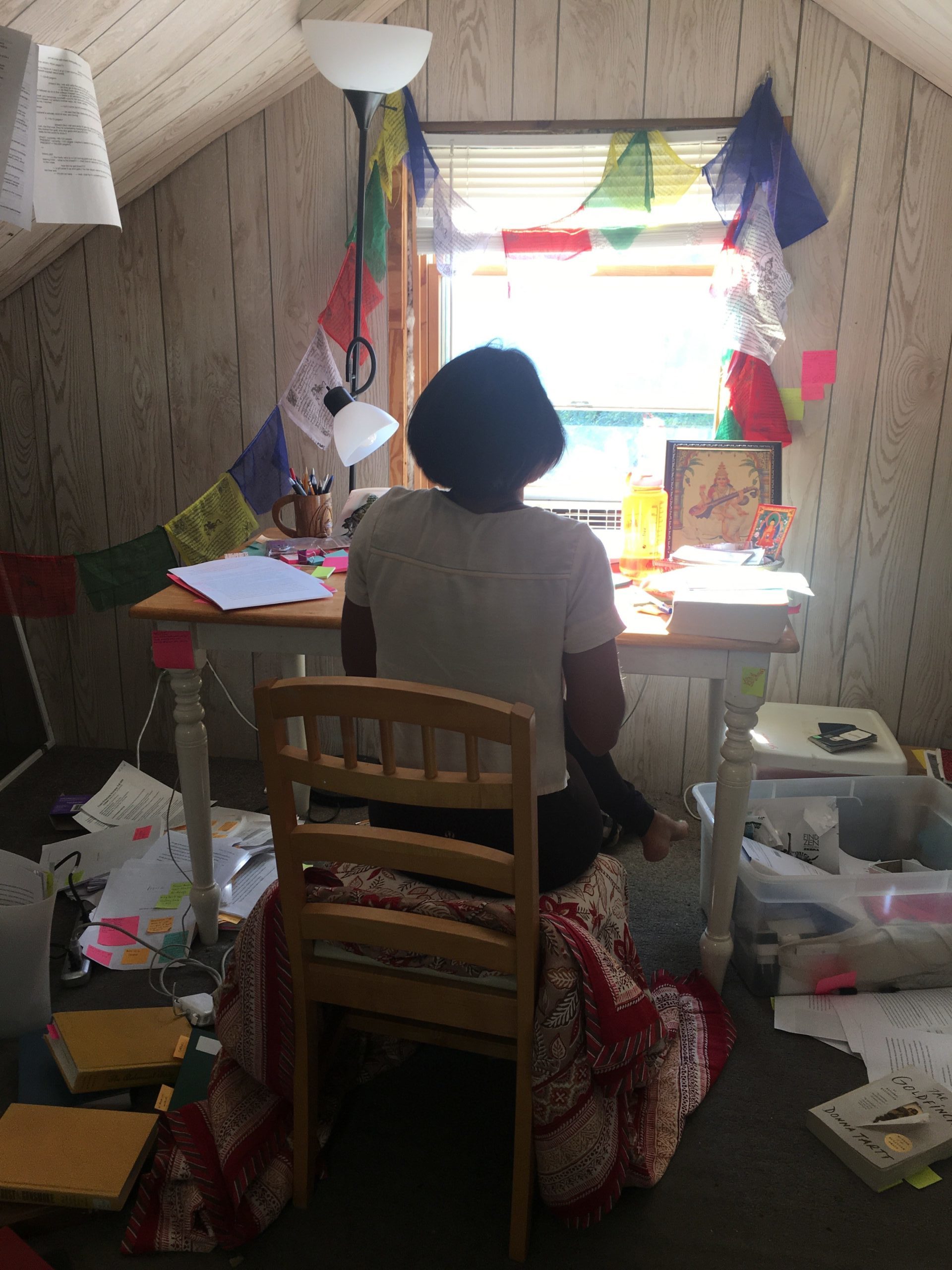
UKIOMOGBE: Which writers would you choose to have dinner with, living or dead?
SATHIAN: Everyone would be disappointing in person, I’m sure. Perhaps George Saunders. He seems like a really nice person. I’d like to go to the Met Ball with Zadie Smith.
UKIOMOGBE: What advice do you have for people who want to be better writers?
SATHIAN: Reread books and learn to read for craft. And become obsessive about punctuation, clauses, clarity (or at least communication with a reader). For a long time, I thought writing was only this organic upwelling of my own great feelings. That’s a huge part of what makes one’s writing alive, but in the end, as Roth once wrote, it’s just moving sentences and words around. You have to love that work enough—more than your own ego or grand feelings.
UKIOMOGBE: What are some unconventional techniques you stand by?
SATHIAN: Use a thesaurus. Everyone says not to because it can cause your writing to sound overly formal, which I think is true. But my teacher in college Anne Fadiman made all of us buy a hard copy of Roget’s to keep on our desks so that we could learn the process of finding the correct word— not the fanciest. She was very exacting, and you can tell how keen her eye is when you read her own writing, which is quite stunning and always inviting. I’m very lucky to have learned some of her habits.
UKIOMOGBE: Can great writing save the world?
SATHIAN: No. I wish. But no one really reads, so the great values we all prize in literature don’t have much of an opportunity to disseminate into the world.




